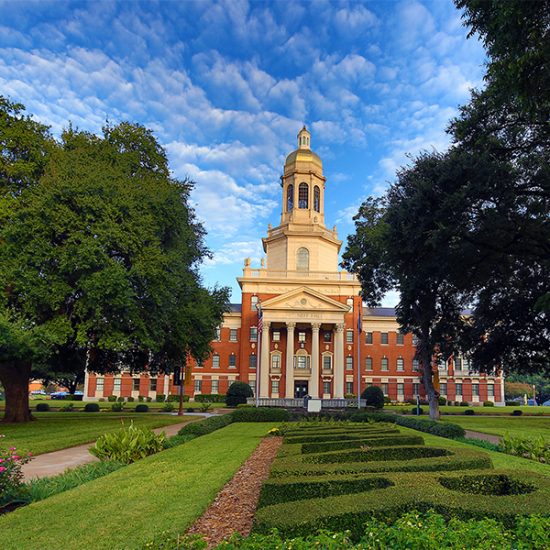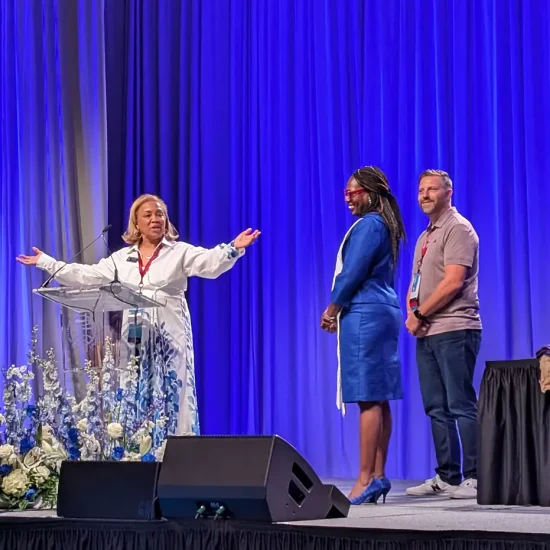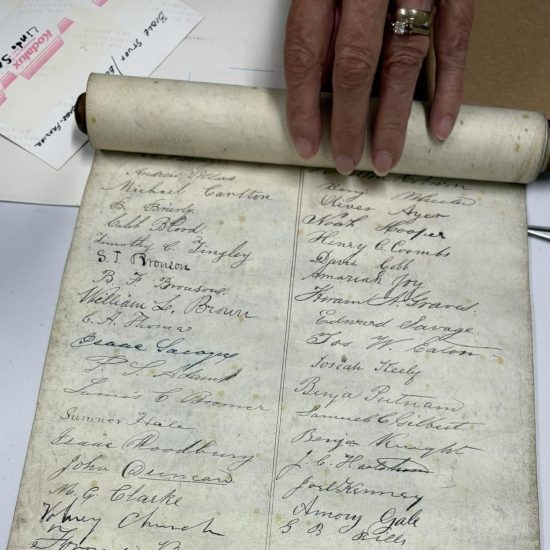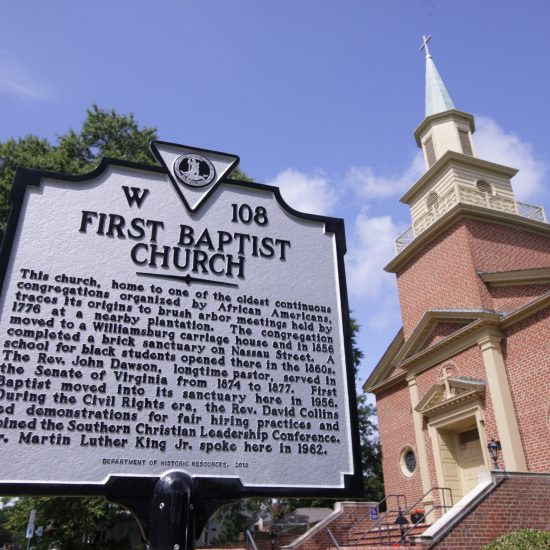
Mercer University football kicks off for the first time in seven decades on Saturday. (Mercer University photo)
|
The excitement around Mercer University football, which resumes Saturday after a 72-year hiatus, has been off the charts. Season tickets sold out long ago and the stadium was redesigned mid-construction to add thousands of extra seats. Athletic donations and recruitment are up, the campus is buzzing and local businesses are all aboard.
Local, regional and national news outlets, including National Public Radio, are publishing stories about the Bears’ return to football, spreading the Mercer name and logo across the nation and Internet.
“I have had two stints at Mercer in 22 years, and I have never seen anything animate our alumni base and our community like football has,” said Larry Brumley, Mercer’s senior vice president for marketing communications. “It’s exceeded our expectations by volumes.”
Similar reports are found at other Baptist schools that have added football to their athletic programs in recent years. Bluefield College and Campbell University preceded Oklahoma Baptist, Mercer and Stetson universities, all three of which begin gridiron play on Saturday.
Driving the foray into football are a number of factors that differ somewhat from school to school. Those include increased school pride and revenues, improvements in recruiting male students, boosting fundraising and alumni involvement and pumping money into local economies.
And while most of the colleges have stayed out of the high-pressure Division I FBS play (Mercer joins Samford University on that level in 2014), officials acknowledge that football’s high-profile status can bring extra headaches, too, from recruiting scandals to pressures to lower academic standards.
Football ‘highly commercialized’
Faculty are often the most vocal in warning against the potential negative influences football can have on university life. A series of reports by the American Association of University Professors cast doubt on the touted financial benefits of football and calls attention to their possible coercive effect on academics.
A 2002 report says college athletics have been transformed in the last century from healthy pastimes into “a highly commercial, increasingly professional enterprise whose control, audience and venues became ever more divorced from campus life.”
In a 2012 Atlanta Journal-Constitution op-ed, Duke University Professor Charles Clotfelter addressed the issue of cheating increasingly occurring around “big time” college sports. He cited schools like Auburn, Georgia Tech, LSU, Ohio State, Tennessee, North Carolina and Michigan as being tainted with violations such as excessive practice times, plagiarism and payments to players.
One culprit is the imperative to win not just games, but championships. “Real change won’t happen until university trustees, not just presidents, show they value the academic mission more than winning games,” said Clotfelter, the author of Big-Time Sports in American Universities.
Officials at the smaller Baptist colleges that field football teams acknowledge their institutions are not immune to those pressures. Just this year, the NCAA’s Division I committee penalized Samford University for violating financial-aid rules involving football, men’s basketball and women’s soccer. Samford self-reported the violations to the NCAA, which fined the university $15,000 and placed it on a two-year probation that began in May.
“These were a series of secondary violations over a three-year period that warranted a public reprimand and censure,” Samford Athletics Director Martin Newton said in a statement posted on the university website. “These rules were not broken to gain a competitive advantage but as a result of not monitoring the rules for financial aid.”
‘You have to confess’
Another Samford official said his advice to other Baptist colleges wading into high-profile sports is always to be vigilant and report mistakes immediately after learning of them.
“You have to confess and move forward and make amends by implementing a process so that one doesn’t happen again,” said Philip Kimrey, vice president for student affairs and enrollment management at Samford.
Officials at other Baptist schools say they’re trying to be vigilant to avoid those kind of pitfalls. “We do worry about that,” said Bob Roller, director of athletics at Campbell University, which launched its football program in 2008 as part of the Pioneer League.
As a safeguard, Campbell created a compliance office with three full-time employees charged with watching squad lists and compliance with academic standards by its 450 athletes. Roller added that there is slightly less pressure for schools competing in conferences that don’t offer athletic scholarships, as is the case in the Pioneer League where Campbell competes.
That’s also Mercer’s league until 2014, when it switches to the Southern Conference. There, it will match up against schools like Samford, Appalachian State, Southern Georgia and The Citadel. The move means corporate sponsors and that Mercer will start offering football scholarships, Brumley said. It also means invites from big-time schools. Mercer opens next season at Georgia Tech. “That’s going to be a David and Goliath story,” he said.
Mercer wants to ensure that the university stays out of stories about academic and recruiting violations, a concern that has been voiced by some faculty members, Brumley said. “That is a risk,” he said.
University President William Underwood has responded to that issue with a consistent and firm message that “Mercer has an unblemished record in that department and he expects to keep it,” Brumley said.
The kind of student athletes Mercer generally recruits will likely help in that case, he added.
They are “very unlikely to go to professional sports,” he said. “They are here to get an education and we graduate student athletes — that is something that is imbedded at Mercer.”
‘A shot in the arm’
While acknowledging the risks, Baptist colleges are rushing into football because of the excitement and often the boost in revenues the sport can bring to their campuses and communities.
Some communities may consider game-day traffic jams as an annoyance, but not the small town of Buies Creek, N.C., Roller said. “It’s amazing how the community has gotten behind it,” he said. “The state highway patrol is out there, there’s lot of game-day signage — it creates a buzz.”
He said it’s had the same effect on campus, which before the Fighting Camels took to the gridiron was a pretty sleepy place on fall weekends. “There’s tailgating, people coming to the games early, homecoming, floats, parades — it really did give the campus a . . . shot in the arm.”
In Macon, the city council considered a proposal recently to allow open containers of alcohol in certain areas for tailgaiting on Mercer football game days, according to a story by The (Macon) Telegraph. The proposal did not come at Mercer’s request, but from the mayor of the city, where Mercer football is expected to have a $6.5 million economic impact.
Mercer anticipates higher revenues from sponsors and by playing against big-time teams when it joins the Southern Conference. But there will also be more expenses. “That means we will begin awarding scholarships next year,” Brumley said.
“But where the cost versus revenue plays out, we don’t know yet,” Brumley added. “We are not deluding ourselves that it’s going to be a big money-maker.”
Jeff Brumley is assistant editor of Associated Baptist Press.






